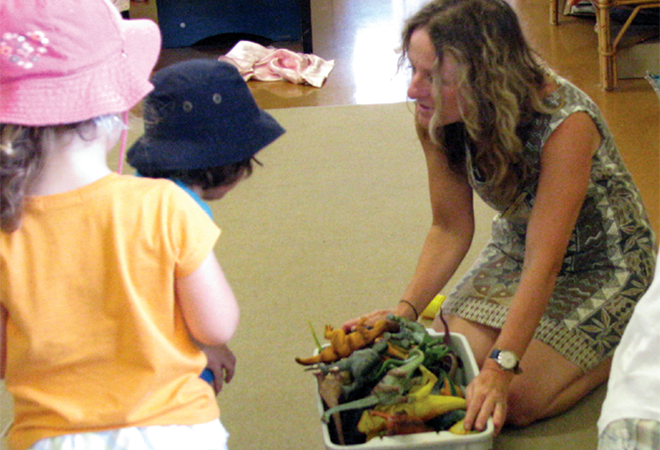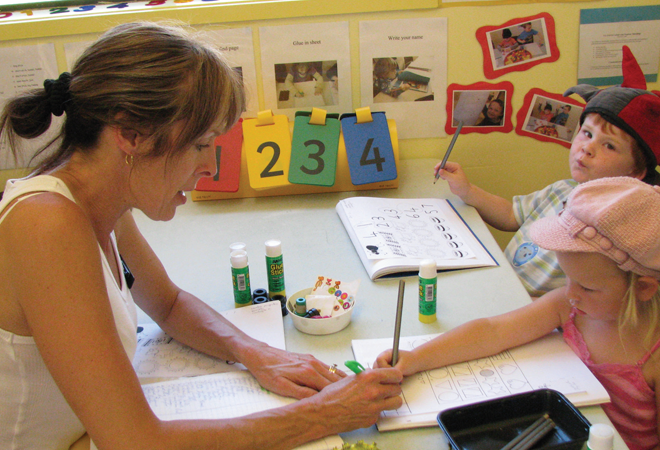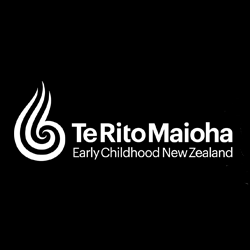

Leaders growing leaders: Effective early childhood leaders for sustainable leadership
Status
Completed: 11 October 2016
Project Details
An eighteen-month project, undertaken by Te Rito Maioha Early Childhood New Zealand, to demonstrate how effective early childhood education (ECE) leaders support the leadership development of themselves and their teaching teams to sustain leadership capacity development in their ECE settings.
Aims:
The project aims were to:
- create a model/framework of sustainable leadership development for the ECE sector
- extend current understanding on models of sustainable leadership in the early childhood sector
- offer policy makers and tertiary education institutions insights and suggestions on the development and design of early childhood education leadership programmes
- have a direct impact on the course content of the postgraduate leadership programme in which the researchers teach
- have a direct impact on the children and whānau within the ECE centres that students of this and other postgraduate leadership programmes lead and work within.
Methodology:
The project used a mixed method approach, both qualitative and quantitative, including:
- an extensive literature review
- a survey questionnaire of ECE centres across New Zealand on the forms of leadership development undertaken and the effect it has had on the respondents’ practice
- interviews and observations of seven ECE centre designated leaders on how they develop leadership within their team
- interviews with teaching teams to identify any barriers to building capability and capacity.
Research questions:
- What leadership processes and structures do effective ECE leaders develop in their centres for the sustainability of the leadership culture?
- What professional learning and leadership development do effective ECE leaders undertake and how has it affected change in leadership practice?
- What leadership actions (pedagogical, team leadership, and organisational) do ECE leaders take in developing others as leaders?
- What are the ‘espoused theories’ and ‘theories-in-use’ used by effective leaders?
- How can the identification of leadership barriers build capability and capacity within the ECE setting?
Team

Debbie Ryder
Project Lead
Te Rito Maioha Early Childhood New Zealand
Gwen Davitt
Te Rito Maioha Early Childhood New Zealand
Sue Smorti
Te Rito Maioha Early Childhood New Zealand
Janis Carroll-Lind
Te Rito Maioha Early Childhood New Zealand
Raewyn Higginson
Te Rito Maioha Early Childhood New Zealand
Mere Smith
Te Rito Maioha Early Childhood New ZealandStatus
Funding
$24,512.00 (excl GST)
Key Findings
The key findings from the project included:
- Effective ECE leaders and teachers do undertake professional learning and development. Often it was not leadership orientated but rather had more of a pedagogical focus. The leaders and teachers acknowledged that professional learning and development contributed to change in practice, but not specifically leadership practice.
- Effective leaders demonstrate strong leadership; model pedagogical and organisational leadership; encourage designated leadership; promote critical inquiry; build confidence and competence; and vision sustainability.
- Effective leaders can grow leadership by building leadership capability and capacity within the ECE setting. Clearly, the leadership of the participating leaders was valued, respected and helped to create a strong ‘culture’ within the different centres.
- ECE leaders developing others as leaders encompassed pedagogical leadership, career development, conceptual, entrepreneurial and community leadership.
- The identified attributes that contributed to the sustainability of leadership within ECE centres were related to recognition of the importance of being a life-long learner, a critical thinker, a proactive team member, and an experienced and reflective practitioner.
- Leadership is a key factor in lifting the quality of early childhood services. Yet, although effective leadership plays a major role in promoting the necessary systems and structures to drive quality outcomes in early childhood services, many people holding leadership positions in these settings have limited professional preparation for their leadership and administration roles. In most cases, leadership development is limited to ‘on-the-job’ learning.
- A high level of congruence was found between what the leaders said they valued (espoused leadership theories of action) and the practices they enacted (leadership theories-in-use), which underscores the value of making ‘leadership practice’ a more explicit part of what leaders and teachers reflect on and articulate within their everyday professional lives.
Key Recommendations
The key recommendations from the project included:
Sustainable leadership development | Supporting sustainable leadership development for current leaders and their teaching teams, and thereby strengthening positive outcomes for children and their whānau, within the ECE sector.
Ensuring effective leadership | Develop a framework to support the professional learning and development in leadership, for leaders and their teams, to ensure that effective leadership is purposefully grown, developed and sustained across their ECE settings.
Design of future tertiary leadership programmes | From a wider perspective this leadership investigation aims to impact on the design of future tertiary leadership programmes in early childhood education.
A research report prepared by Debbie Ryder, Gwen Davitt, Raewyn Higginson, Sue Smorti, Mere Smith and Janis Carroll-Lind.
(PDF, 1.2 MB, 128-pages).
- 13 January 2017
Case studies prepared by Debbie Ryder, Gwen Davitt, Raewyn Higginson, Sue Smorti, Mere Smith and Janis Carroll-Lind.
(PDF, 2 MB, 92-pages).
- 1 November 2017